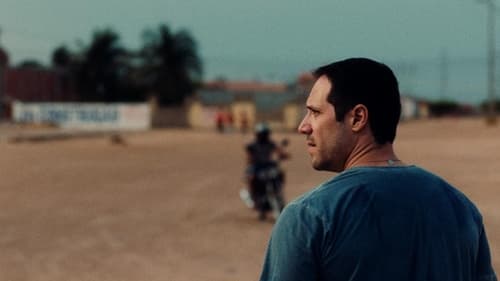
Editor
40-year-old Daniel has been suspended from active police work and is under internal investigation for violence. When Sara, his internet love affair, stops answering his texts he decides to drive north in search of her, starting on what is apparently a fool's errand. He shows Sara's picture around, but nobody seems to recognize the woman. Until eventually one guy pops up, saying he can put the two in touch under very specific conditions.
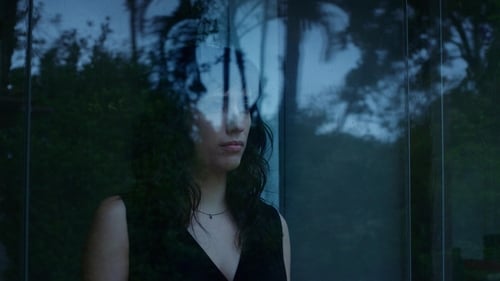
Editor
The couple Laura and Israël have a five-year-old son, Lucas. They live together but seem to have lost interest in one another's thoughts and cares. Their relationship seems headed for the rocks, and the only one who seems to still be looking for something from life is Lucas.

Editor
Film adaptation of "The letter from the hunchback to the locksmith" by Fernando Pessoa's heteronym Maria José.

Editor
스페인 내전이 끝나고 안쇼는 갈리시아의 고향 마을로 돌아간다. 길에서 마주친 사람들은 새로운 정권에 대한 옹호와 반대 의견을 피력하고 안쇼는 마을 분위기가 예전과 같지 않음을 느낀다.
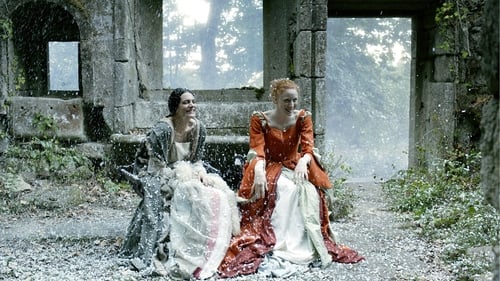
Cabreira
이탈리아 북부, 폰 케텐은 먼 나라 포르투갈에서 신붓감을 찾아 나선다. 신혼여행을 마치고 고향으로 돌아온 그는 주교를 물리칠 기회가 왔다는 소식을 듣곤 집을 떠나 전장으로 발길을 옮긴다. 그와 혼인한 포르투갈 여성은 고국으로 돌아가라는 남편의 뜻을 거절하고 10년 넘게 성에 머문다.

Editor
이탈리아 북부, 폰 케텐은 먼 나라 포르투갈에서 신붓감을 찾아 나선다. 신혼여행을 마치고 고향으로 돌아온 그는 주교를 물리칠 기회가 왔다는 소식을 듣곤 집을 떠나 전장으로 발길을 옮긴다. 그와 혼인한 포르투갈 여성은 고국으로 돌아가라는 남편의 뜻을 거절하고 10년 넘게 성에 머문다.

Editor
Abandoning a life of petty crime, David strives to fulfill his life-long ambition to become a professional singer of Fado, Portugal's popular folk-song. Together with his best friend Adriano, he starts performing on Lisbon's Fado Vadio circuit to perfect his craft, but whilst Adriano's strong voice swiftly brings him paid gigs, David struggles. Vadio is a human portrait of redemption, perhaps unattainable through music but possible with poetry. Unfortunately, David doesn't want to be a poet. It is a love story for a bygone Lisbon and Fado, where people still find catharsis singing songs about their sorrows.

Editor
정치적 이유로 망명을 떠나야 했던 포르투갈의 시인 호르헤는 소피아와 약 20년간 편지를 주고 받으며 우정을 나눈다. 시인 소피아 안드레센과 호르헤 데 세나가 주고 받은 실제 편지들을 바탕으로 만들어진 독특한 형식의 영화. 여러 출연자들이 각자의 공간에서 편지를 낭독하는 가운데 과거 포르투갈의 기록 영상, 뉴스 클립 등이 섞여든다. (2017 포르투갈 영화제_포르투갈의 여성 감독들)

Editor
"In the beginning of this project, I wanted to do a documentary film based on this book by Luiz Ruffato. However, I ended up doing a feature film with many links to documentary. I wanted to know what made Brazilians want to emigrate to Portugal. I chose working with amateur actors and non-actors in both cities, so their own life stories and experiences could be in the film. I did the other way round from the writer. He found these people and made them characters of his book. I looked for people who had similar stories to those described in the book, and made them characters of my film. When I read the book, I was seduced by its "false documentary" characteristic. The book was all written as if it was the transcription of an oral interview the writer had done in Lisbon. I decided to keep this narrative in the film, by a narration with the main character talking to the camera. It's a film about emigration. About dreams and disappointments," says Barahona

Luís Mário Lopes wrote the solo A Boa Alma for Mónica Calle in 2015, based on the works of Bertolt Brecht marking the departure of Casa Conveniente from Cais do Sodré and their arrival in the new venue in zona J, Chelas. The original score is by JP Simões.

Editor
Life is as unchanging as ever in the village: the sun sets between memories. The arrival of a young outsider changes everything. The old are offered a new gift and they accept it. The dreams awaken an old song which pulses through the village. 'With Fate driving the cart of everything along the road of nothing.'

Editor
Adi and Stefan go on an adventure through Latin America with only their guitars and an old school bus. Exposed to hardship and injustice they discover that music transcends all.

Editor
Sofia lives a strangely isolated life in the old apartment where she grew up in Lisbon. Mariama arrives from Guinea-Bissau, having been hired by Sofia’s mother to help take care of the house and her son. The appearance of Bobô, Mariama’s younger sister, awakens in Sofia the desire to take a stand. The forced cohabitation between Sofia and Mariama forces them to confront their own private ghosts.
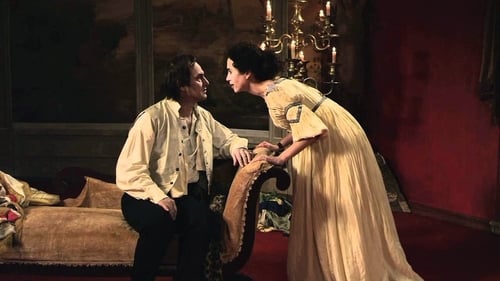
Editor
부유한 귀족 호베르투는 많은 여성들과 만남을 갖지만 사실 누구에게도 깊은 애정을 느끼지 않는다. 그러던 어느 날, 호베르투는 한 파티에 참석했다가 매력적인 여성을 만나 그녀의 기구하고 극적인 사연을 듣는다. 연극의 실내 무대를 적극적으로 활용한 독특한 미술, 해설자의 갑작스러운 개입 등 실험적인 연출이 돋보이는 멜로 드라마.

Editor
Com Que Voz is a documentary that recounts the life of Alain Oulman, an important cultural figure during the nineteen-sixties and seventies, who left an indelible mark on Portuguese and French society. The film, shot in Lisbon, Paris and Tel Aviv, features celebrated authors, politicians and musicians, such as: Patricia Highsmith, Amos Oz, Amalia Rodrigues and Mario Soares.

Editor
One of the most important figures in contemporary cinema, Pedro Costa's celebrated music documentary is a mesmerizing portrait of French actress-turned-singer Jeanne Balibar, a transfixing, cigarette-smoking chanteuse with an intense devotion to her craft. Photographed in shimmering black-and-white and featuring a soundtrack of jazz-inflected pop songs, the film is a luminous exploration of the creative process.

Editor
This documentary follows a 70 years old, Angolan nurse on a nearly impossible humanitarian mission into her home country. In a southern region that was specially affected by the long lasting, recent civil war, the local hospital has to be restructured. At this place where accidental death, poverty and lack of hygiene continue to be a part of people's daily life, the subversive presence of mystical forces seem to reinvent the meaning of life.

Editor
A story about art and educated men, and how their art and culture reveal themselves useless in the face of the harsh realities of the 20th century life.

Editor
Joáo Bénard da Costa, director of the Portuguese National Film Archives [deceased in 2009], interviews the dean of contemporaneous film directors [96-years-old then]. Two humanists of different philosophical backgrounds, both with their long, entire lives dedicated to culture in general (music, painting, literature) and to film in particular, discuss freely, sometimes haltingly, the director's power as a creator or a magician, the philosophy beyond particular scenes in classic movies, film technique, the importance of color, sound and music to films, art versus entertainment, and much more. Their talk takes place in a museum room, seating in front of "The Annunciation" (a 1510 oil painting by João Vaz, a Portuguese artist), which eventually leads to a discussion of 'Leonardo da Vinci', and the relationship between a trend-setter master and his disciples.

Editor
Previously focused on Asian directors, “Jeonju Digital Project 2007” takes a look at Europe. The Portuguese filmmaker Pedro Costa, the German filmmaker Harun Farocki, and the French filmmaker Eugène Green participated in this project.

Editor
The legend of Floripes, is about an enchanted moor of Olhão, in the Algarve. Enchanted moors are one of the cornerstones of Portuguese mythology. They are often seductive and being temptresses, they can offer a powerful reward, but also a terrible curse. Left in Portugal during the Reconquista while her family went back to North Africa, beautiful Floripes was condemned to roam her ancient kingdom in the Algarve until a man could undo her curse. Then she would marry him and give him her fabulous treasure. But if the man fails, she must eat his heart.

Editor
Ivo and Tomás, two volunteered vagabonds who feed their souls of ways and great winds. From time to time they make a stop, renting their arms, the necessary time to be able to, provisions made, get on the road again. Once, with the sun at its peak and a burning heat, the desert that they are crossing seems to be endless. They run out of water… in the end of the day, without any strength left, they let themselves fall near to a dried bush. Ivo stares at the moon rising, as is saying farewell and whispering verses of a poem of a lawyer they’ve met before. It is then that he sees a far light. They set their way to that house…

Editor
A fairy tale from the computer age: a 15 year-old boy finds a computer, which has the magical power of undoing short periods of his life.

Editor
Undaunted by a commission to make a film about his mentors and aesthetic exemplars, the filmmaking team of Jean-Marie Straub and Danièle Huillet, Costa records with great sensitivity and insight the exacting process by which the two re-edit their film Sicilia!, discussing and arguing over each cut and its effect. Incorporating comments about the influence of figures as diverse as Chaplin and Eisenstein, about the ethical and aesthetic implications of film technique and such matters as rhythm, sound mixing, and acting. The film becomes a tour de force, immersing us in the mysteries of cinema as practiced by some of its greatest creators. Costa calls the film both his first comedy and his first love story.

Editor

Editor
A man is standing at the window, holding a chair. There are wafts of street noise, and occasionally the curtain flutters. A dog is barking. Then, elegiac music sets in, a lavish string arrangement of Billie Holiday's The End of a Love Affair. With this one-shot film, Pedro Costa portrays the state of feeling of the afterwards of a love affair which led nowhere.
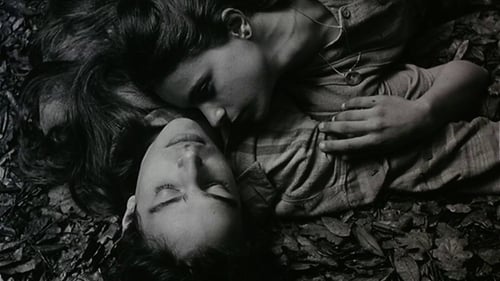
Editor
An impossible love. Two young people who love each other. Vera and João can’t find in this life the space, time, or identity to resolve their love story.

Editor
Six unused scenes from Where Does Your Hidden Smile Lie? One of the more priceless of the “bagatelles” in this collection features a lounging Jean-Marie Straub who gives a non-stop disquisition on liberty and filmmaking while Danièle Huillet busies herself with laundry, and their dog Melchior frisks in and out of frame. —Cinematheque Ontario
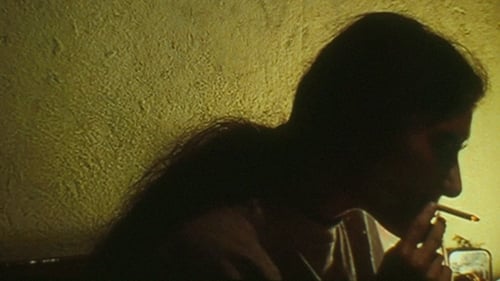
Editor
An unflinching, fragmentary look at a handful of self-destructive, marginalized people, but taking as main focus the heroin-addicted Vanda Duarte.

Editor


























